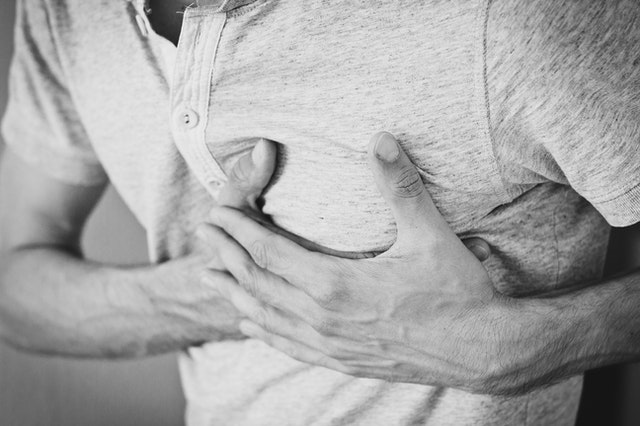
Raise your hand if you’ve ever experienced heartburn. If you could see me right now, you’d notice my hand is raised very high! If I even look at certain foods (especially fatty foods and carbonated beverages), I can feel that familiar burning in my esophagus.
It turns out heartburn is a very common condition that impacts an estimated one out of every five people. It is described as a painful or burning sensation that begins in the upper part of the abdomen and moves upward. Many people experience this unpleasant sensation after eating certain foods. It can also be triggered by wearing clothing that’s too tight around the midsection or by lying down too soon after eating.
But what if you’re actually dealing with acid reflux rather than heartburn? If you’re wondering what the difference is between the two, here’s a brief overview of what acid reflux is and how it differs from heartburn.
What You Should Know About Acid Reflux

Acid reflux is a condition that happens when stomach acids and potentially other contents from your stomach make their way back up through your esophagus. As you can imagine, this can be very painful and irritating. But more than that, they can be damaging to your body and your overall health.
The reason stomach acid comes back up through the esophagus in people who have acid reflux is often because the sphincter in the lower esophagus doesn’t work properly. Whether it’s weakened or damaged, the sphincter fails to close all the way and allows the harmful contents of the stomach to come up where they don’t belong.
Another common cause of acid reflux is a hiatal hernia, which is an abnormality in the stomach that occurs when the upper portion of the stomach and the lower esophageal sphincter move upward into the diaphragm area. The diaphragm normally keeps the stomach separated from the chest, but in cases where a hiatal hernia is present, the diaphragm can’t prevent stomach acid from rising up into the esophagus.
Other potential causes of acid reflux disease include:
- Smoking
- Pregnancy
- Carbonated beverages
- Spicy foods
- Being overweight or obese
- Taking too much ibuprofen, aspirin, or some blood pressure medications
- Lying down or bending over immediately after eating a heavy meal
- Snacking or eating too close to bedtime
- Drinking too much alcohol
Generally, eating a healthy diet low in processed foods and sweets can help minimize the symptoms of acid reflux.
Symptoms of Acid Reflux

But what if you’re not sure whether you have acid reflux or something else? Well, here are some common acid reflux symptoms to look for:
- Sour taste in your mouth
- Burning sensation rising from your stomach into your chest
- Regurgitation of food (this often happens when burping)
- Difficulty swallowing food
- Dyspepsia (a burning sensation in the middle part of your stomach)
- Frequent bloating
- Chronic upset stomach
- Excessive burping or vomiting
- Feeling uncomfortably full
- Dry cough
- Chronic sore throat (especially in the mornings)
- Asthma symptoms
These are all common symptoms of acid reflux. If you ever experience a tightening or squeezing sensation in the chest, or heartburn that seems different than usual, you may want to seek emergency treatment, as you might actually be experiencing a heart attack!
Acid Reflux Treatments

There are a few things you can do to minimize your acid reflux symptoms and improve your quality of life. They include:
- Medication prescribed by a doctor
- Surgery
- Lifestyle changes (including losing weight and eating a healthy diet)
- Quitting smoking
- Avoiding late meals
- Sleeping on an incline
- Avoiding carbonated beverages
I have found great relief from my acid reflux symptoms, and I have confidence you can, too! You may want to begin by making lifestyle changes, then visiting your doctor if your symptoms don’t improve or if they’re already severe. You’ll be amazed at how much better you feel when you’re not dealing with acid reflux anymore!

